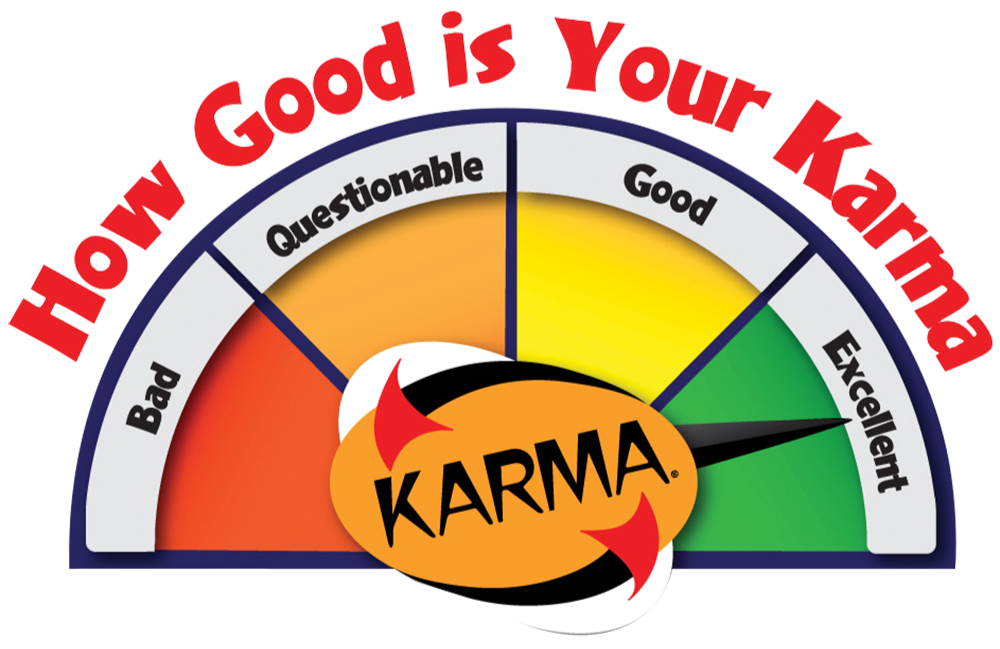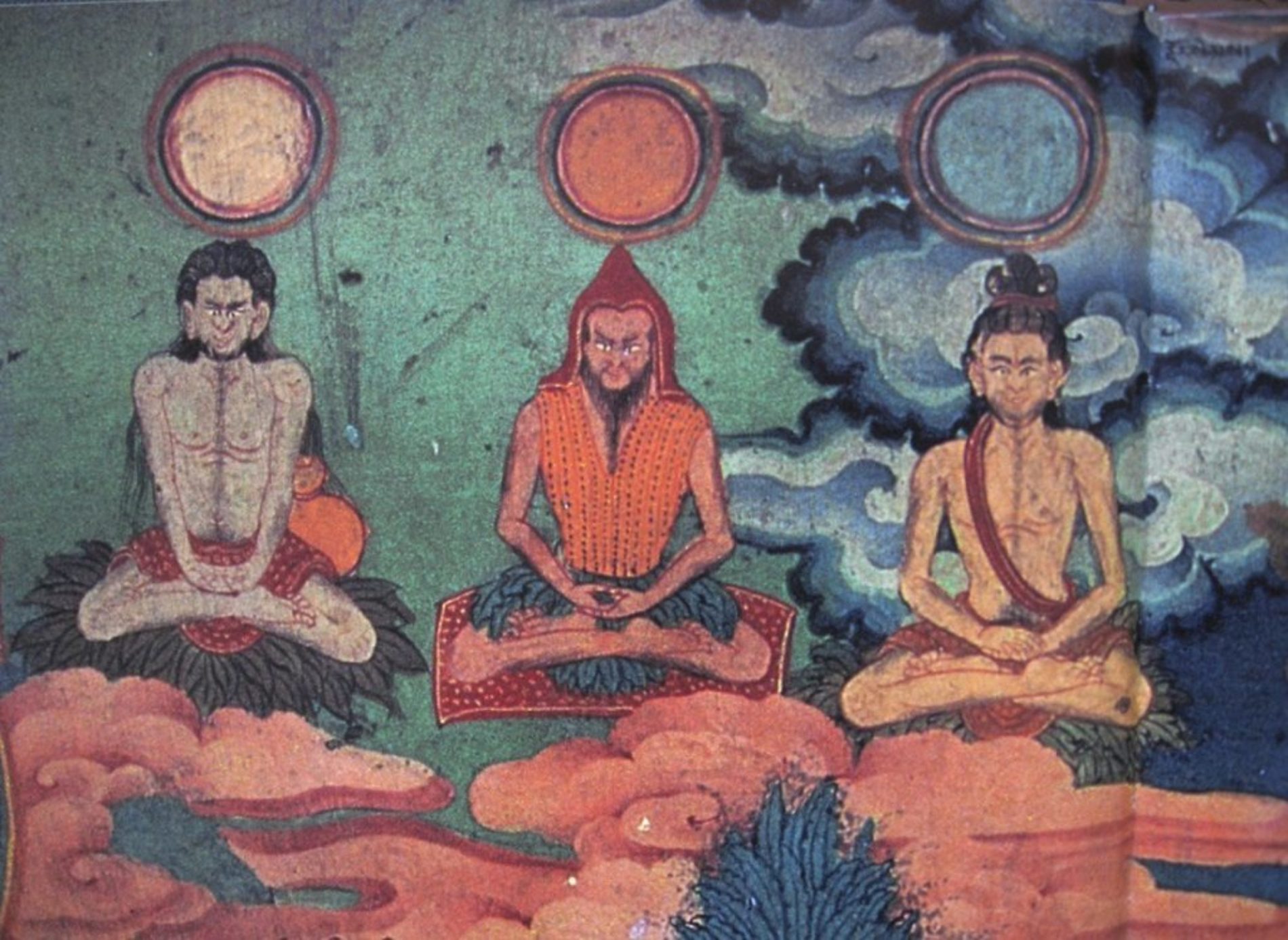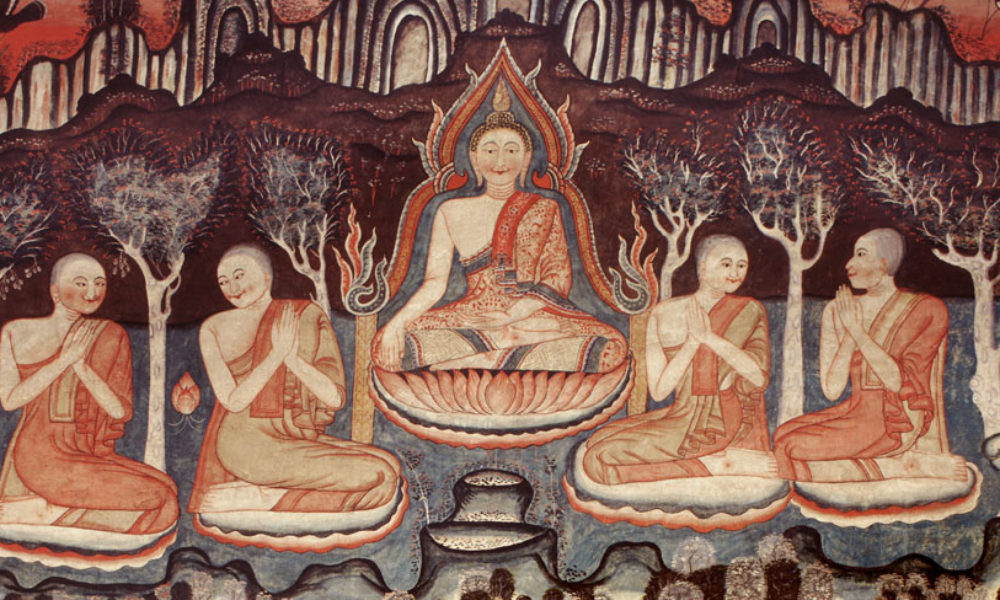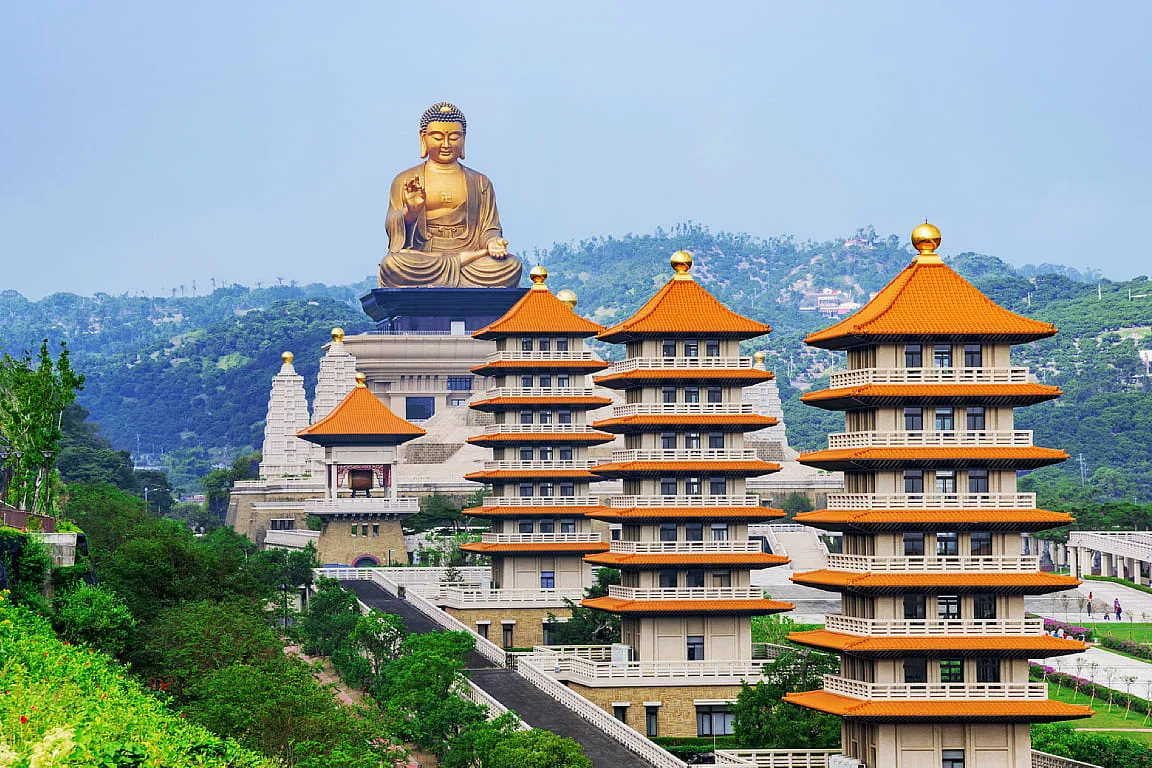Karma, the actions of the body, speech, and mind, is deeply rooted in the teachings of Buddha and the principles of dharma, reveals the interconnectedness of our existence. It encompasses the deeds of our past lives, resonating with us in the present and shaping our future.
When we understand karma, it allows us to take responsibility for past actions with an attitude of compassion, appreciating that a particular act may have been unwholesome or harmful, and strongly determining not to repeat it.
We always experience Karma that we created!
Karma Guide: Understanding the Power of Actions
Karma, derived from the Sanskrit word meaning “action,” encompasses the verbal, mental, and physical actions we engage in, including our reactions to the world around us.
There exist three types of actions: bad, neutral, and good, each yielding corresponding results. It is a simple yet profound principle: bad actions beget bad outcomes, neutral actions bring about neutral consequences, and good actions yield positive results.
Our actions possess the power to mold our environments, but it is crucial to recognize that motivation carries weight. Consider a scenario where you steal something to help someone in need. While your intention was noble, the act itself remains unwholesome, creating a lesser degree of negative karma due to the positive motivation that benefits others.
Within the realm of karma, two distinct forms emerge: individual karma and collective karma. Individual karma pertains to the consequences one faces based on their own actions, while collective karma encompasses the repercussions experienced by a group or society as a whole. Both forms accumulate and influence future lives, magnifying suffering or enhancing happiness accordingly.
The results of our actions, whether favorable or unfavorable, will manifest sooner or later, much like words spoken that cannot be taken back. However, we possess the ability to shape our karma by cultivating positive and beneficial actions, thus creating a ripple effect of goodness.
It is essential to understand that anger erodes positive karma, while regret undermines negative karma. Our emotions hold sway over the ripening of karma: good emotions foster the maturation of good karma, while negative emotions perpetuate the fruition of bad karma. Nurturing a virtuous ethical code enables us to be reborn in the human realm, where opportunities for growth and awakening abound.
While we cannot alter the past, we bear full responsibility for the present moment.
Karma and Nirvana (Moksha)
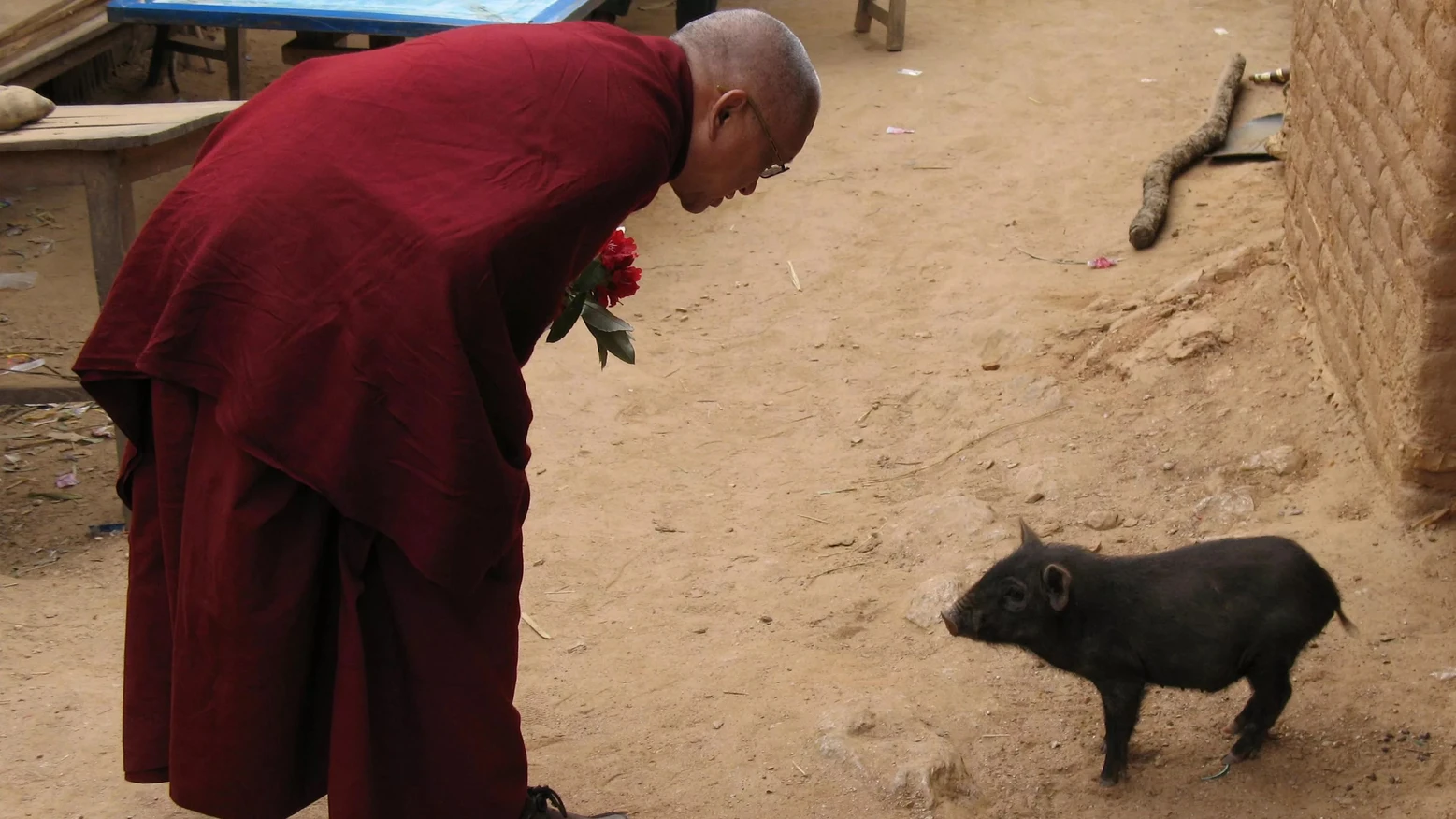
Six Realms of Existence
According to the teachings of the Buddha, there exist six realms or planes of existence: the four lower realms characterized by suffering, the human realm, and the higher planes encompassing various heavenly worlds.
These six realms represent different forms of rebirth or can be seen as psychological states experienced within our current human lives.
The lower realms are shaped by intense anger, hatred, greed, and delusion. When we cultivate these negative states and allow them to become habitual responses to situations, they gain significant influence over the mind.
Although the human realm is considered one of the happier planes of existence, it does not exempt us from experiencing suffering. Nonetheless, the human realm offers ideal conditions for the development of wisdom and compassion due to its unique combination of pleasure and pain, providing fertile ground for profound understanding and realization.
The profound insight of the Buddha’s teachings lies in the notion that each of us bears ultimate responsibility for the quality of our lives. Based on our volitional actions, specific results inevitably follow. Understanding that our lives unfold according to the laws of karma, and that we are the inheritors of our own deeds, fosters a deep sense of responsibility for the choices we make and the actions we undertake.
In Buddhism, the journey of evolution hinges on the generation of positive karma. This accumulation of virtuous actions supports sentient beings in attaining rebirth in higher realms, propelling them towards spiritual progression.
Karma doesn’t act like a god. You are the only one who is responsible for your happiness and suffering. You created the causes and conditions that lead you to this particular moment.
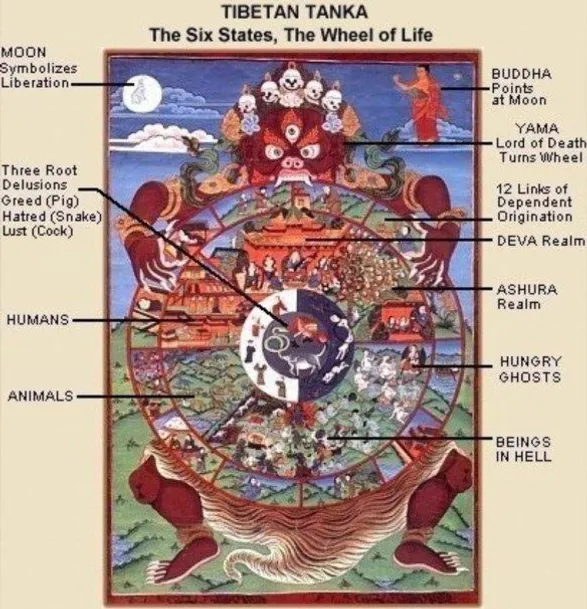
Karma serves as the driving force behind our existence in Samsara, a continuous cycle of birth and death into various forms of life. We are born, we die, and we are reborn repeatedly until we liberate our souls from the grip of karma.
Recognizing the causal relationship between our volitional actions and their consequences, we gain a heightened awareness of the immense responsibility we hold for how we live our lives. This understanding inspires us to make conscious choices and engage in virtuous actions that lead to positive outcomes.
Recommend reading: Rebirth and Science
Changing your Karma through Meditation
Every action, thought, intention, and even the things we acquire from society leave an indelible imprint on us. In every single moment, we possess the power of choice—to act or not to act.
There is no one to blame or praise but ourselves. Our present circumstances are a reflection of our past actions and results.
Meditation serves as a guide, teaching us to cultivate awareness of our actions, thoughts, and their outcomes. When we sit in meditation, we observe our impulses without allowing them to translate into immediate action. We simply watch them. Through this observation, we swiftly realize that all impulses in the mind arise and pass away, having a life of their own. They are mere thoughts, not a reflection of our true essence, and we need not conform to them.
Mindfulness has the power to reshape the chain of actions and consequences. It liberates us, offering new paths in the moments we call life. Without mindfulness, we easily become entangled in the momentum of our past, lacking awareness of our own growth and lacking a way out.
By pausing external activities and cultivating stillness, we break the cycle of old karma, creating a fresh and healthier karmic path. The very act of stopping, nurturing moments of non-doing, and simply observing places us on a different trajectory toward the future.
How? Because in this moment of complete presence, we open the door to greater understanding, clarity, and kindness. We become less influenced by fear and hurt and more guided by dignity and acceptance.
Purification of Bad Karma
In order to purify our negative karma, it is essential to cultivate the four opponent powers: the power of regret, the power of reliance, the power of remedy, and the power of resolve.
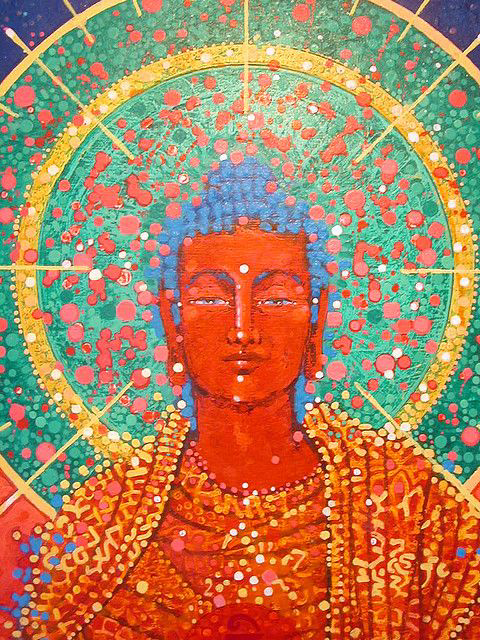
Regret
Regret entails acknowledging our actions and recognizing the harmful consequences they have brought about. It involves removing any defense or justification for our actions from our minds. In Buddhism, nonvirtuous actions are considered negative not because they defy authority or laws, but because they lead to unpleasant and painful experiences. Regret does not involve guilt but rather an honest admission of the impact of our actions.
Reliance
Reliance entails reestablishing our connection with spiritual practice. It involves renewing our devotion, compassion, awareness, or presence. Often, negative actions occur when we lose attentiveness and mindfulness. By consciously reaffirming our commitment to spiritual practice, we create conditions that prevent the recurrence of negative actions.
Remedy
Remedy involves taking actions that disrupt the pattern underlying our negative actions. If possible, we rectify the negative action through apology, restitution, or amends. If direct remedy is not feasible, we engage in positive actions with the explicit intention of offsetting the negative consequences. This can include making charitable donations, performing community service, helping a friend, or even extending kindness to someone we may not particularly like. Apology forms a vital part of the third force, remedy. It holds the power to mitigate harm and redirect the course of events towards a more constructive path.
Resolution
Resolution is the firm intention to refrain from repeating such actions in the future. As long as we entertain even the slightest notion of engaging in similar actions, the patterns associated with those actions continue to develop and grow. To halt the progression of the karmic process, we must wholeheartedly renounce any defense or intention to repeat such actions. With unwavering resolution, we sever the ties that allow these patterns to persist and evolve.
Through sincere regret, renewed reliance on spiritual practice, active remedies, and resolute determination, we pave the way for a life guided by wisdom, compassion, and virtuous actions.
Motivation and Karma
An action consists of three parts:
Preparation, which includes motivation and intention;
The actual action itself;
The completion of the action.
If our actions are motivated by greed, hatred, or delusion, we sow the seeds of suffering. Conversely, when our actions are fueled by generosity, love, or wisdom, we create the karmic conditions for abundance and happiness.
Often, we overlook this conditioning factor in our experiences, mistakenly believing that once an experience passes, it vanishes without leaving any residue or consequences. This would be akin to dropping a stone in water without creating any ripples. However, each mind state and the motivation that precedes our actions further condition and reinforce them.
The Buddha specifically used the term karma to refer to volition or will—the intention or motive behind an action. He emphasized that karma is volition because the motivation behind an action determines its karmic consequences.
Embedded within every intention in the mind lies a powerful energy capable of generating subsequent results. Understanding that karma is rooted in volition, we recognize the immense responsibility we hold in becoming aware of the intentions that precede our actions.
The key is to clarify our motivations and uncover the layers behind them. This doesn’t mean berating ourselves for prioritizing our own needs at times, but rather being realistic. Realistic enough to care for ourselves and avoid excessive work, for example. Realistic enough to extend a dollar to a beggar in need.
By delving into the motivations behind our actions and the actions of others, we gain a deeper understanding of the world’s complexities. This understanding can guide us in making wise choices and taking meaningful actions that promote harmony, justice, and compassion.
Guided Meditation on Karma
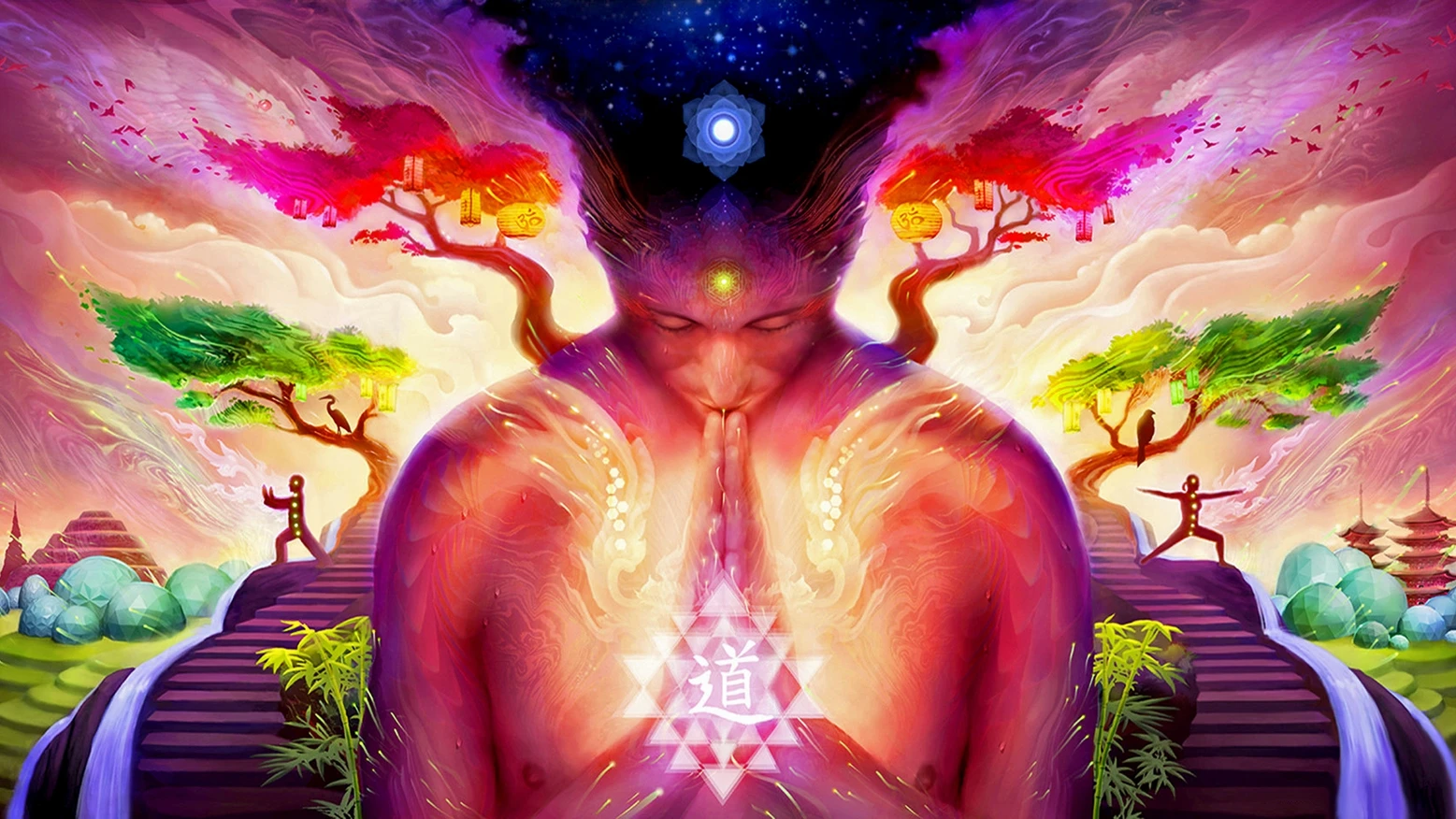
Sit in a comfortable position. If you are sitting on a chair, try to keep your back straight and your feet touching the floor. If you are sitting on a cushion, find the most comfortable position. Relax!
Keep your eyes closed or open.
Just breathe. You are here and now. Be present, alive, striving to be the best version of yourself, and spreading love and compassion to all sentient beings on Earth.
Inhale and exhale.
Karma denotes action, work, or deed. It also refers to the spiritual principle of cause and effect. Karma can influence your present and future. Some of your karma was even generated in past lives.
Meditating on karma involves reflecting on our actions.
Every action, thought, intention, and acquisition from society leaves an imprint on you. You have a choice, every single second, to act.
Now, let’s think of a moment when you became really angry at a person or situation. Why did that happen? What occurred prior to that moment? How was your relationship with that person?
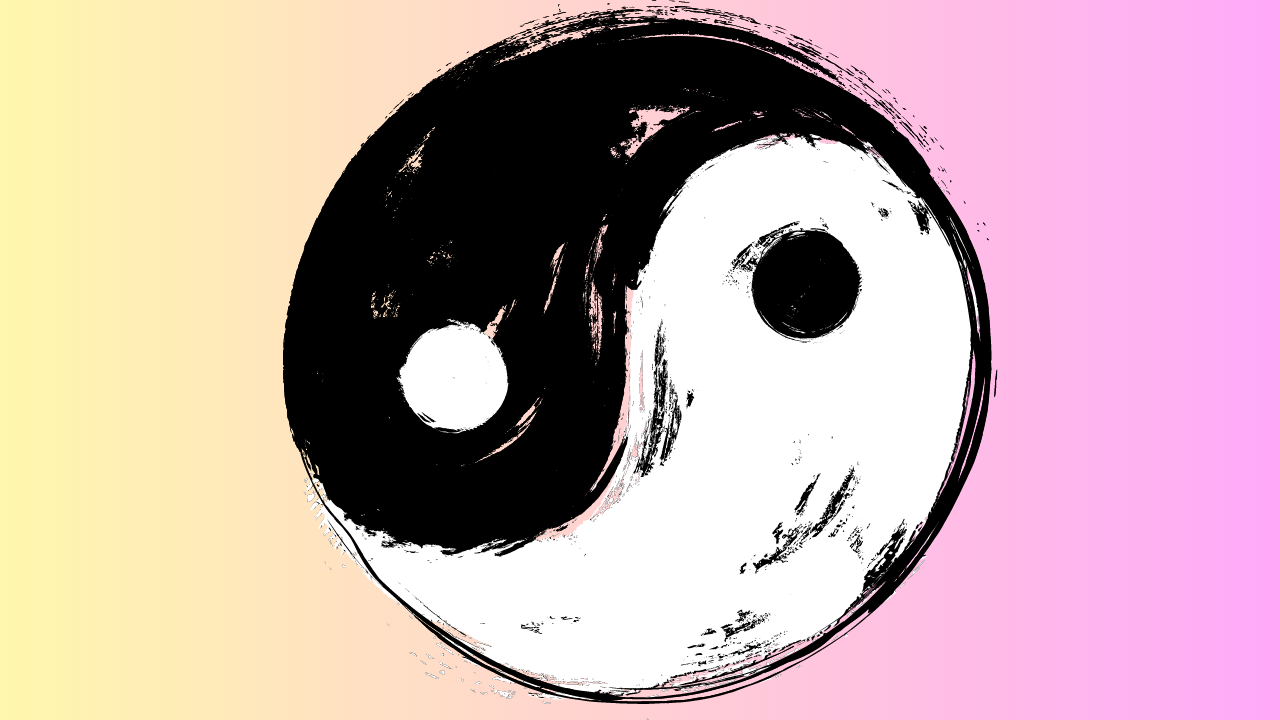
Nothing is accidental. If we are experiencing specific results, it is solely because we have created the cause. Furthermore, what we experience is neither someone else’s fault nor the result of a creator’s imposition. In fact, the good or bad experiences we have are the outcomes of our own actions.
There is no one to blame or praise; you have done it yourself. You are here and now due to your past actions and their results.
Now, reflect on a happy moment in your life. What were the conditions leading up to it?
Not only does each action, no matter how seemingly insignificant, shape a future outcome, but it also reconditions the mind. We are accountable for the influence of greed and anger on ourselves, as we have created the conditions for their emergence.
With an understanding of karma and the effects of our actions, we begin to take responsibility in our lives.
By engaging in positive actions, cultivating positive thoughts, and refraining from judgment, we generate positive karma. We assume responsibility and take action, recognizing that it all depends on us.
When negativity overwhelms you, return to your breath. Just three deep breaths can be enough. Remember that what you do or think now will have repercussions in the future.
Open you eyes, smile!
The 9 Best Books on Karma
Karma and Buddhism go hand in hand. You can’t change your Karma, just like you can’t take your words back, but you can work on creating only good Karma by doing positive beneficial actions!
The Path of Individual Liberation by Chögyam Trungpa
Buy the book here
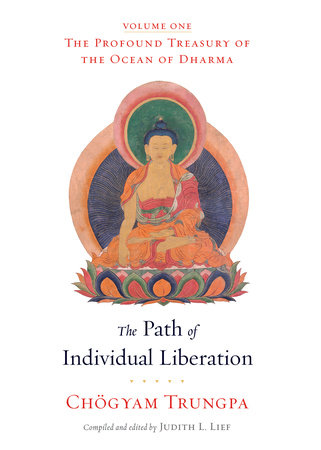
Cutting Through Spiritual Materialism by Chögyam Trungpa
Buy the book here
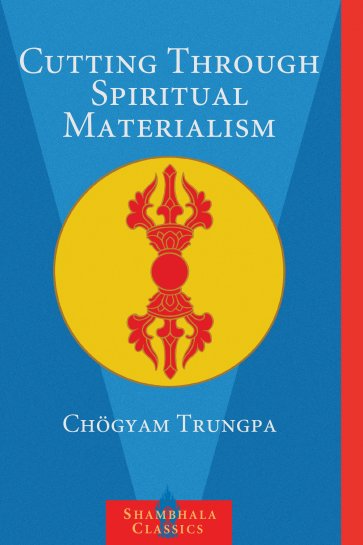
Way of the Bodhisattva (Bodhicharyavatara) by Shantideva
Buy the book here
![]()
How Karma Works The Twelve Links of Dependent-Arising By Geshe Sonam Rinchen
Buy the book here
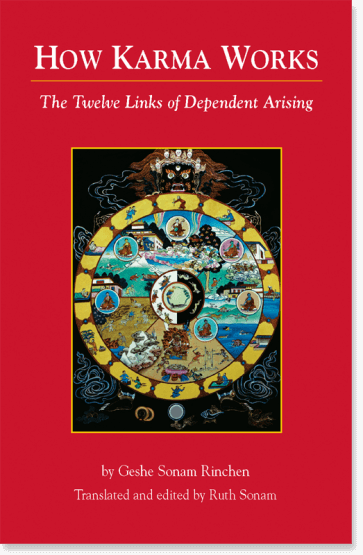
The Future Is Open. Good Karma, Bad Karma, and Beyond Karma by Chogyam Trungpa
Buy the book here

Zen & Karma: Teachings of Roshi Taisen by Roshi Taisen Deshimaru
Buy the book here
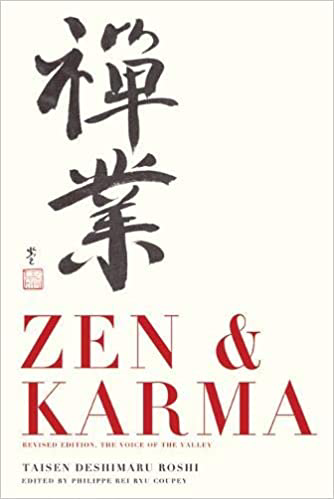
The Joy of Living: Unlocking the Secret and Science of Happiness by Mingyur Rinpoche
Buy the book here
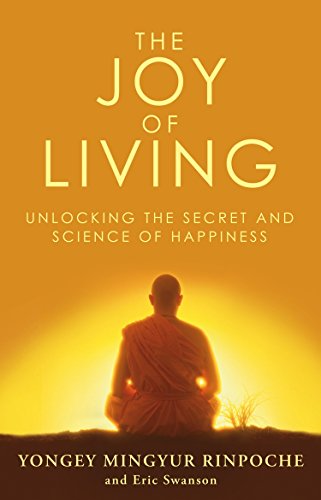
This Precious Life by Khandro Rinpoche
Buy the book here
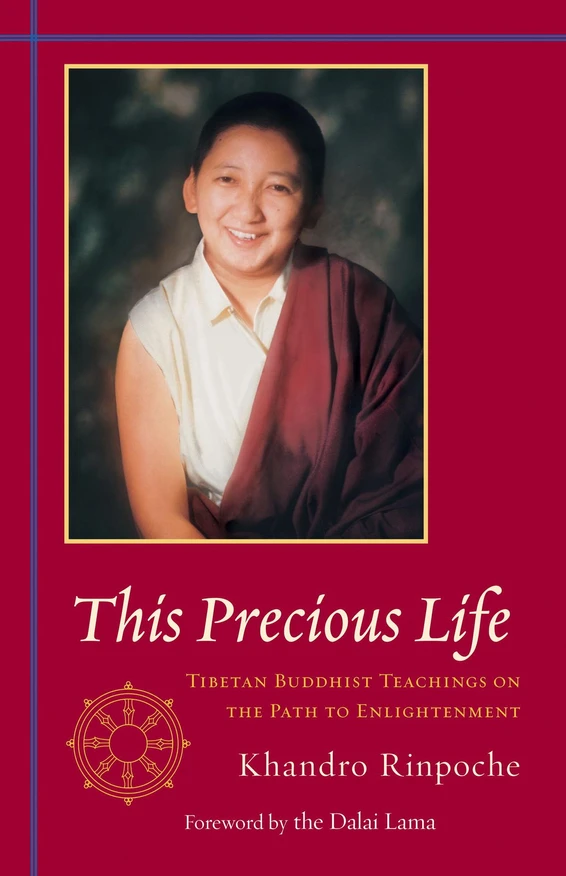
The Meaning of Life by the H.H. the Dalai Lama
Buy the book here
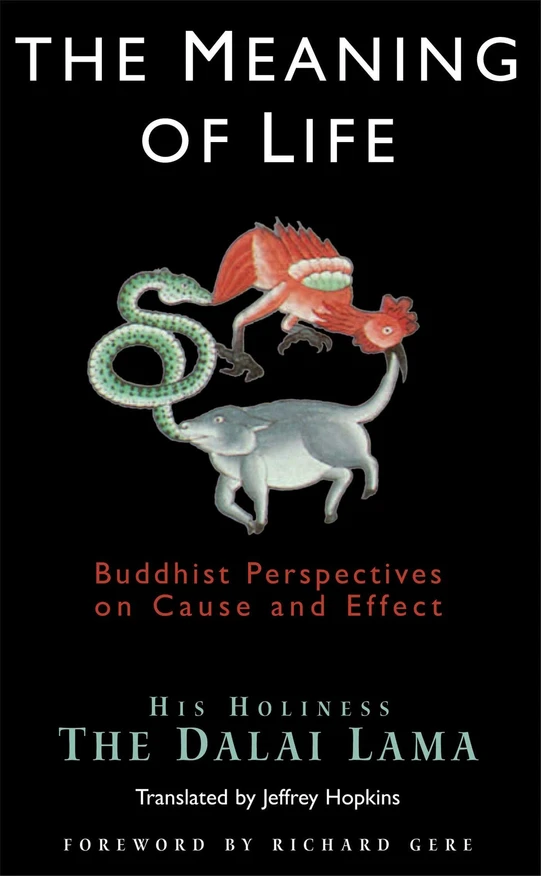
Embrace the wisdom of karma, for it illuminates the power of our actions and the responsibility we hold. By mindfully treading the path of virtuous conduct, we navigate a transformative journey toward creating positive karma, paving the way for a future brimming with harmony, compassion, and lasting fulfillment.
- Follow us on Instagram, and Facebook.
- Subscribe to our YouTube channel.
- Looking for more great content? Dig into our blog.
- Email us at hi@meditationmarathon.me

